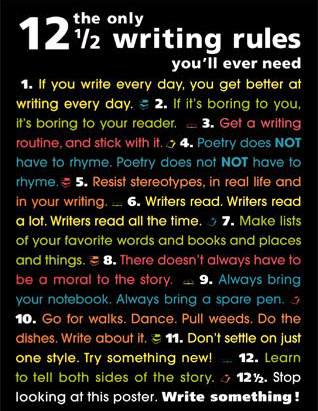I had been writing pretty regularly from 2010 onwards till 2013. I have hardly written anything this year, and whatever little I have written, I have not posted it on this blog – sumit4all.com . Many of my friends have asked me to start writing again, and have questioned me time and again why I have stopped writing. To be honest, I have been asking the same question too. I decided to write this article to better formulate my thoughts on this topic, but now I have decided to post this online for all to read and know.
So the question first – Why haven’t I been writing anything lately?
Well, there are two big reasons for that, and I will try to elaborate on them below, as clearly as possible.
1. I didn’t have much to say
I have always tried to be very honest in my writings, and always written what I wanted to say. I have written because there was something I needed to communicate, and not because I ‘should’ write an article on my blog regularly. But there are a few events in life which alter the way you view life so drastically that even you can’t believe it. On the outside, everyone thinks you are the same person, and expect you to behave like you have always done. But inside, you are in such a conflict that you are just hoping to figure it all out. You don’t see the world the same way, don’t think the same way, don’t believe what you used to before. I was in such a state after my mother passed away. I could not resonate with whatever I had written previously, as my thinking, beliefs and actions had changed suddenly.
I did not write anything because I had nothing to say. I read my own articles and poems and they felt so alien now. I was not interested in the ideas and projects I was so excited about before. I shut off CricketRadius.com – the start up I was working on, moved back to Delhi and got back to a job. I wrote a few articles here and there, but the frequency was nothing like before.
2. Coding and Photography
Once I moved back to Delhi in Nov 2012, I stopped my involvement in every social project or tech startup I was involved with. I had a new job in a new city, so I just dived back in all the tech stuff and computer programming/coding, which I still enjoyed. A few months later, at an office off-site, I brought along my DSLR, which I had bought in Bangalore 3-4 years earlier, but never used it a lot due to work or some other project I was so occupied with while in Bangalore. It would not be wrong to say that I haven’t put the camera down after that. I have always loved photography right from my childhood, but over the last two years, I have connected with my camera like never before. It became a medium for me to hide behind and communicate to the world in a totally different way.
Over the last two years, I have traveled and taken my camera to places all over the country. For Leh in the north to Rajasthan and Pune in the west, to Sikkim in the east and to numerous other places near Delhi. Apart from these travels, I have taken my camera out on the streets of Delhi and captured some candid street shots. After a lot of gear hopping which resulted in two new cameras and another set of expensive lenses to go along, I am getting the feeling that I am just getting started in a new way of communicating – via my photographs.
Looking ahead, I am not sure whether this is just a phase or this is something that will last for long. Well, time will tell. As of now, I am looking to start a photography specific blog where I will write less and try to say more through my photographs. I will also keep on writing on this blog whenever I have something to say, whatever the frequency of that be, in the future.
“When words become unclear, I shall focus with photographs. When images become inadequate, I shall be content with silence.”
— Ansel Adams





